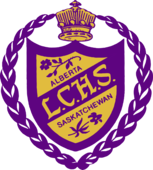Policy 2
ROLE OF THE BOARD
The Board is a body created by provincial legislation and it exercises its authority within The Education Act, 1995, its attendant Regulations and The Lloydminster Charter. The Lloydminster Public School Board is elected by the voters that support the Lloydminster Public School Division. The Board of Education is responsible for the development of strategic directions, goals, and policies in compliance with provincial legislation and reflective of electorate values.
Specific areas of responsibility are:
- Accountability to the Provincial Government
- Act in accordance with all statutory requirements to implement provincial educational standards and policies.
- Perform Board functions required by governing legislation and existing Board policy.
- Accountability to Community
- Make data-driven decisions which reflect the Lloydminster Public School Division’s foundational statements and strategic plan and represent the interests of the entire community served.
- Establish processes and provide opportunities for information sharing with the community and for community input.
- Report Division results annually.
- Develop procedures for, and hear appeals as required by statute and/or Board policy.
- Model a culture of respect, transparency, and integrity.
- Provide for two-way communications between the Board and the School Community Councils
- Ensure the Board exercises its rights and fulfills its responsibilities as defined in The Lloydminster Charter.
- Strategic Planning
- Provide overall direction for the school division by establishing the Division’s Foundational Statements and strategic outcomes.
- Annually set priorities and outcomes.
- Annually approve the budget which aligns with the Strategic Plan.
- Approve accountability reports monitoring progress toward the achievement of the goals in the Strategic Plan.
- Annually evaluate the effectiveness of the Division in achieving established goals and desired results.
- Approve and ensure public accessibility of the Annual Report to the Community.
- Policy
- Identify the purpose to be achieved before creating a new policy.
- Approve policy statements that meet criteria identified by the Board.
- Evaluate policy impact to determine if the policy has created the desired change.
- Conduct regular review of Board policies for currency and appropriateness.
- Director/Board Relations
- Select the Director.
- Provide the Director with clear corporate direction.
- Delegate, in writing, administrative authority and identify responsibility subject to provisions and restrictions in The Education Act, 1995.
- Respect the authority of the Director to carry out executive action and support the Director’s actions exercised within the delegated discretionary powers of the position.
- Interact with the Director in an open, honest, proactive and professional manner.
- Annually evaluate the Director in regard to the Director job description, Board Policy 12, and additional Board direction (e.g., hold the Director accountable for achievements of the LPSD Strategic Plan).
- Review the Director’s Compensation as per their contract.
- Political Advocacy
- Build bi-provincial credibility for the unique status of the Division.
- Develop a yearly plan for advocacy.
- Work with SSBA and ASBA to lobby governments on provincial priorities.
- Board Development
- Develop a yearly plan for trustee development, including increased knowledge of role, processes, and issues to further effective implementation of the Division’s Strategic Plan, utilizing SSBA and ASBA resources as applicable.
- Annually evaluate Board effectiveness.
- The Board Annual Work Plan will reflect the Board development activities.
- Fiscal Accountability
- Annually approve the budget and ensure resources are allocated to achieve desired results.
- Annually approve the Preventative Maintenance and Renewal and Infrastructure Maintenance and Renewal plans and amendments.
- Review actual results in a financial category that deviates from budget by more than $50,000 or 10%, whichever is greater.
- Annually approve the five-year capital plan and review the facilities master plan.
- Submit the five-year capital plan to Saskatchewan Education if required.
- Award tenders for capital expenditures and cost variances on purchase orders exceeding $75,000.00.
- Collaborate with the City of Lloydminster and the Lloydminster Catholic School Division to determine an appropriate Seamless Delivery Levy in accordance with The Lloydminster Charter.
- Approval of the transfer of funds to reserves.
- Appoint an auditor and set the terms of engagements.
- Receive the Audit Report and Management Letter and ensure quality indicators are met.
- Monitor fiscal management of the Division through quarterly fiscal accountability reports.
- Set the mandate for employee group negotiations.
- Ratify memoranda of agreement with bargaining units.
- Annually approve compensation for out-of-scope staff.
- Review and approve the Trustee Remuneration Rates.
- Authorize, by resolution, the borrowing of required monies to cover necessary expenditures while waiting for the proceeds of taxes and other revenues.
Selected Responsibilities
- Approval of transportation boundaries.
- Approval of Division school-year calendars.
- Authorization of exceptions to provincial physical education safety guidelines.
- Appointment of an individual to be in charge of a harassment complaint when the Director is unable to act.
- Acquisition and disposal of land and buildings, including expropriation proceedings
- Naming of schools and other Board-owned facilities.
- Approval of facility Joint Use Agreements.
- Approval of new leases; such leases to include any provisions for the placement or modification of facilities by outside agencies.
- Approval of instructional materials fees.
- Approval of specific initiatives to be funded from the Board’s unallocated surplus.
- Approval of the purchase of Board memberships in non-educational associations.
- Encouragement of qualified and interested candidates to run for the office of public school trustee.
- Recognition of students, staff and community.
- Address inappropriate behaviour of any trustee.
- Review and approve real estate leases
- Obtain membership in the SSBA, ASBA, Public Section and other governance associations deemed necessary.
- Approval of service providers for driver education training
- Approval of associate school status
- Approval of Pre-Kindergarten programs not funded by provincial funding.
- Approval of international field trips.
Legal Reference:
Section 42, 61, 63, 85, 87, 108, 277, 278, 279, 280, 281, 282, 283, 285, 286, 287, 288, 289, 292, 293, Education Act Interpretation Act
Adopted:
June 2007
Last Amended:
November 27, 2024





























